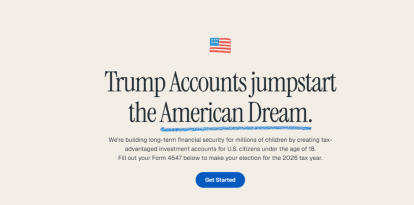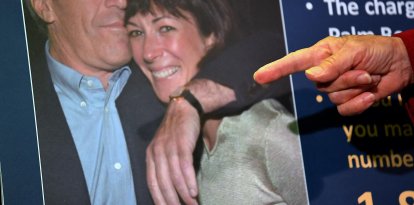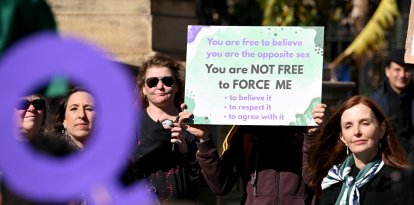Is Qatar funding antisemitic protests at American universities?
Several analysts affirm that these are not spontaneous protests and that the Qatari government has been financing and promoting hatred against Israel, Jews and the West in general for years.

Un manifestante antisemita pisa una bandera israelí en Nueva York. (Captura Fox News)
The success of the despicable antisemitic and pro-Hamas demonstrations at U.S. universities stems from the fact that they are not spontaneous not at all, but they are well organized and financed from abroad, says Dr. Yaron Friedman, researcher at the University of Haifa, in Israel, in a article published by Israeli newspaper Maariv.
Friedman maintained that to reveal who is behind the protests, it is necessary to go back to 2019, when a coalition of Arab countries made up of Saudi Arabia, the United Arab Emirates, Bahrain and Egypt boycotted Qatar for its support of terrorism.
Unlike what is currently happening, during the period of the boycott of Qatar, Arab commentators and journalists published articles that exposed the country's propaganda efforts in the United States and the money that Qataris invested in the American country's educational system.
Before the reconciliation between Saudi Arabia and Qatar, the press in the nations that made up the coalition against Qatar was busy publicizing the way in which the Muslim Brotherhood, an Islamic extremist organization, had taken control of part of the U.S. education system.
Friedman recalled that in July 2020, Emirati researcher Najat Al-Saied published an article in Alhurra titled "Qatar and the Funding of American Universities." In her writing, the academic described the strange alliance formed between the American radical left and Muslim Brotherhood activists in Qatar. In addition, she pointed out that more and more teachers and students were joining that alliance They were taking over freedom of thought in America's universities.
Dr. Al-Saied maintained that under the pretext of "political correctness" and alleged "racist thinking," academics were silenced for expressing an opinion that differed to that of the teachers and students who were part of the alliance of the radical left and Islam. She mentioned shocking data from the United States Department of Education, according to which in 2019, American educational institutions received more than $1 billion in external financing, with much of that from Qatar.
In 2012, The Qatar Foundation, the Qatari international education institution, spent at least $1.5 billion to fund educational initiatives at 28 universities across the United States and became the largest outside financier of education in the North American country. Al-Saied further revealed that the country regularly spent $405 million per year to finance activities at six American universities that have branches in Doha, the Qatari capital.
Friedman stressed in his article that, of course, this funding was not a gift, since Qatar uses the activities it promotes and the research it finances to spread its Islamist ideology. He added that it is a country based on a extremist Wahhabi doctrine and that Sheikh Tamim bin Hamad al-Thani, current emir of Qatar, was deeply influenced by the ideology of Sheikh Yusuf al-Qaradawi, one of the leaders of the Muslim Brotherhood who worked in Qatar until his death in 2022.
Al-Saied stated in her article that Qatari propaganda aimed to glorify the country and defame its rivals, mainly Saudi Arabia, Egypt, the United Arab Emirates and Bahrain. She added that the money from Qatar was intended to finance the Muslim Brotherhood and the radical left in the United States.
The academic also argued that Qatar sought to bolster American progressives because conservatives opposed Doha and supported its rivals, including Saudi Arabia.
According to a recent report by The Washington Free Beacon, Qatar has invested $5.6 billion in 81 American universities since 2007, including some of the country's most prestigious: Harvard, Yale, Cornell and Stanford.
The report also refers to the financing of academic activities by other countries, such as Saudi Arabia, Oman and Turkey, although in significantly smaller amounts. According to the report, these activities funded by Qatar and these other Middle Eastern countries promote hatred towards the values of Western culture, such as freedom of expression and women's rights.
According to a 2020 report from the United States Department of Education, many of the donations given to American academic institutions were given by nations who are openly hostile to U.S.
The Washington Free Beacon report further indicated that Middle Eastern donors, especially Qatar, were funding anti-Israel activities, even before the war in Gaza began following the Oct. 7 massacre by Hamas.
Antisemitism on campus generated serious concern in the White House even before recent protests
In statements to Argentine newspaper Perfil, international analyst Alberto Ruskolekier said in November 2023, months before the recent antisemitic incidents at several American universities, that “there is major antisemitism” in Ivy League universities. “And this generated concern in the White House,” he added on that occasion.
Ruskolekier also pointed out the reason why, according to him, left-wing protesters and Islamists do not protest against Chinese authorities even though they keep members of the Muslim Uyghur minority in concentration camps. “There are universities that receive, through facades, money from the Chinese government,” he said.
Regarding the conflict in the Middle East, Ruskolekier expressed that “Qatar finances Hamas, and that is a big problem.”
The United States considers Qatar a necessary evil
Qatar has always been in the West's sights for its support of Islamic extremism, and the case of Palestine is no exception. In fact, Qatar houses top Hamas leaders, offering them all possible luxuries, while the residents of Gaza are suffering from war due to the decisions of their authorities, which paradoxically are supported by the vast majority of the same civilians in the Gaza Strip and the West Bank under the Palestinian Authority of Mahmoud Abbas.
However, American foreign policy seems to look the other way. As journalist Eli Lake wrote in an article published by The Free Press, this is because “for the last 25 years, this small, energy-rich state has pumped billions into America to purchase influence and good favor.”
The American writer explained that “the Qataris have spent their lavish fortune at American law firms, on lobbying contracts with former senior officials, and on junkets and partnerships with big media companies.” He continued: “The biggest recipients of Qatari largesse, though, have been major universities and think tanks.”
These universities' ties with Qatar continue, despite Qatar's foreign minister saying shortly after Oct. 7 that “Israel is solely responsible” for the massacre carried out by Hamas and the country harboring the terrorist organization's leaders.
Lake further stated that many of these universities have had to compromise their values on their Doha campuses. In some cases, American think tanks cooperated with Qatar's strategic interests. “The Qatar campus of Northwestern, whose U.S. journalism school is ranked as one of the best in the world, signed a memorandum of understanding with Al Jazeera, the Qatari-funded news channel that has provided a sympathetic platform for Hamas and other Islamist groups over the years, to help train its reporters,” the journalist wrote. Furthermore, it should be noted that many Al Jazeera employees were accused of participating in the Oct. 7 massacre.
Lake added that Al Jazeera aired a weekly program hosted by Muslim Brotherhood cleric Yusuf al-Qaradawi between 1996 and 2013. He also recalled that in a 2009 sermon broadcast by the station, the religious leader stated: "I will shoot Allah’s enemies, the Jews, and they will throw a bomb at me, and thus I will seal my life with martyrdom."
In 2015, Stephen Eisenman, then president of Northwestern's Faculty Senate, concluded in a report on his school's Doha campus that faculty there enjoyed only “limited academic freedom.”
Eisenman also acknowledged that “the ethics of establishing a campus in an authoritarian country are murky, especially when it inhibits free expression, and counts among its allies several oppressive regimes or group.”
Despite Qatar's alliance with Islamic extremists, the United States considers the country a kind of necessary evil. In this sense, Lake explained that “one reason why Qatar has been able to invest so much in American institutions is because U.S. foreign policy has embraced the country since the war on terror began after 9/11. ven though Qatar is aligned with Hamas, and to a lesser extent, Iran, it also hosts the Al Udeid Air Base.”
The journalist added that “the Qataris are an important interlocutor between America and Iran. After President Biden’s chaotic withdrawal from Afghanistan, Qatar agreed to process more Afghan refugees than any other Arab ally. Today Qatar holds the $6 billion in Iranian oil revenues that America unfroze in September and refroze after the October 7 Hamas pogrom.”
























